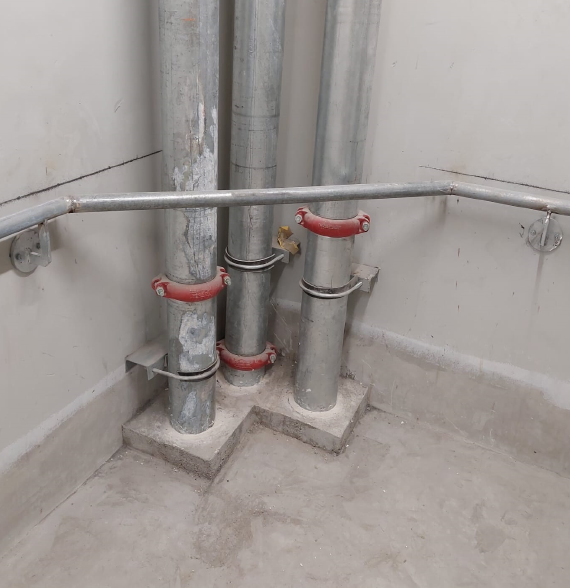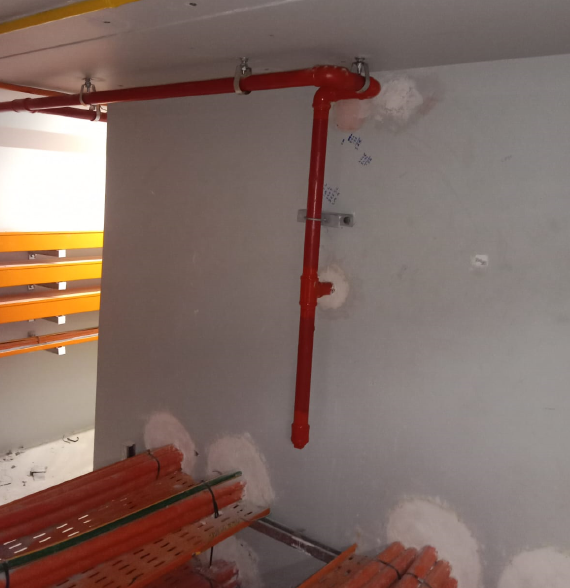
PROMASEAL®-A Acrylic Sealant will adhere to a wide range of
surfaces. All common foam backer rods are suitable as bond
breakers. Surfaces do not need priming if dust free. If in doubt,
apply the diluted (by adding 50% water) PROMASEAL®-A
Acrylic Sealant to the surfaces by brush. It is essential that the
correct width to depth ratio of PROMASEAL®-A Acrylic Sealant
is maintained in control joint seals (see table below).
In order to cure correctly, PROMASEAL®-A Acrylic Sealant
must not be subjected to high humidity or moisture during the
curing period.
Fire Rated Sealant is applicable to the following fire resistance systems: -
1) Fire stopping for pipe sleeve openings;
2) To seal up the construction joints;
Aden M&E will provide the best service for the supply materials and (or) supply & installation for the above-mentioned systems with Promaseal -A Acrylic Sealant.
The penetration seals of PROMASEAL®-A Acrylic Sealant
around fl oors also assists in stopping the passage of water
and/or cold smoke through the fl oor or wall. However, for
permanent water seals appropriate products should be used,
e.g. silicones or polyurethanes.
Wherever services penetrate barrier systems, PROMASEAL®-A
Acrylic Sealant should be used in conjunction with the
appropriate fi re stopping system to ensure there are no
small gaps which will allow smoke to penetrate the barrier. In
external or wet areas the use of PROMASEAL® Supa Mastic is
recommended as an alternative.
PROMASEAL® Supa Mastic is a one part polyurethane based
sealant suitable for external and wet area applications.
Installation as well as the approvals are similar to those
prescribed for PROMASEAL®-A Acrylic Sealant. Please consult
Promat for more details as the approvals for this new product
are increasing at all times.
